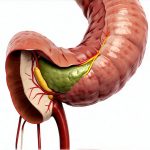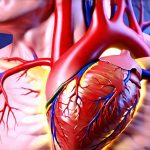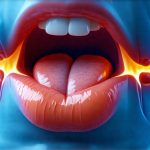Acid reflux is something most people experience at least occasionally – that burning sensation in your chest after a particularly spicy meal, or the uncomfortable feeling of food “coming back up.” While often dismissed as an inconvenience, many wonder if frequent acid reflux could signal something more serious than just dietary indiscretion. It’s natural to be concerned when discomfort lingers, and understanding the potential connections between occasional heartburn and underlying health issues is crucial for proactive health management. This article aims to explore the nuances of acid reflux, differentiating between typical experiences and warning signs that warrant medical attention, without offering specific medical advice.
The digestive system is a complex network, and disruptions can manifest in various ways. Acid reflux occurs when stomach acid flows back up into the esophagus, the tube connecting your mouth to your stomach. This happens because of the lower esophageal sphincter (LES), a muscular ring at the bottom of the esophagus, doesn’t close properly. While everyone experiences this occasionally – especially after large meals or certain foods – frequent episodes can lead to gastroesophageal reflux disease (GERD). Understanding when heartburn crosses the line from a common occurrence to a potential health concern is vital for maintaining well-being and seeking appropriate care if needed.
Understanding GERD and its Progression
Gastroesophageal Reflux Disease, or GERD, isn’t simply “bad acid reflux”; it’s a chronic condition that develops when frequent reflux causes symptoms or complications. It’s characterized by persistent heartburn, regurgitation (the sensation of food coming back up), and sometimes difficulty swallowing. Unlike occasional acid reflux which is often triggered by specific foods, GERD tends to be more consistent and can significantly impact quality of life. The severity of GERD varies greatly; some individuals experience mild symptoms manageable with lifestyle changes, while others require ongoing medical intervention.
The progression of GERD can occur over time if left unmanaged. Initially, the esophagus may become inflamed due to repeated acid exposure – this is known as esophagitis. Over years, chronic inflammation can lead to more serious complications such as esophageal strictures (narrowing of the esophagus), Barrett’s esophagus (a change in the lining of the esophagus which increases cancer risk), and even esophageal adenocarcinoma. Early recognition and management of GERD are therefore important for preventing these long-term consequences. It’s essential to consult a healthcare professional if you suspect you have GERD, as they can properly diagnose your condition and recommend appropriate treatment strategies.
It’s also worth noting that the experience of GERD can be atypical in some individuals. Instead of classic heartburn, symptoms might manifest as chest pain (potentially mimicking heart problems), chronic cough, hoarseness, or even dental erosion from stomach acid exposure. These “silent reflux” symptoms can make diagnosis more challenging, highlighting the importance of a thorough medical evaluation if you’re experiencing unexplained health issues. Perhaps these reactions are can reactions related to underlying healing processes?
When to Worry: Red Flag Symptoms
While occasional heartburn is rarely cause for alarm, certain symptoms should prompt immediate medical attention as they could indicate a more serious underlying condition or complication of GERD. These “red flag” symptoms aren’t simply about the intensity of the heartburn; they’re about how it presents and what other symptoms accompany it.
- Difficulty swallowing (dysphagia): This can indicate esophageal narrowing or obstruction, potentially requiring intervention to restore normal swallowing function.
- Unintentional weight loss: Coupled with GERD symptoms, this could suggest a more serious underlying issue like esophageal cancer.
- Severe chest pain: While often mistaken for heartburn, severe and persistent chest pain should be evaluated by a medical professional to rule out cardiac problems. Do not self-diagnose chest pain.
- Vomiting blood or having black, tarry stools: These are signs of internal bleeding and require immediate medical attention.
- Chronic hoarseness or voice changes: Could indicate acid reflux affecting the vocal cords.
These symptoms should never be ignored. They warrant a prompt consultation with a doctor to determine the underlying cause and receive appropriate treatment. It’s crucial to remember that self-diagnosis can be dangerous, and only a qualified healthcare professional can accurately assess your condition. If you suspect food sensitivities are playing a role, it’s best to seek professional guidance.
Lifestyle Modifications for Acid Reflux Management
Many individuals can effectively manage mild to moderate acid reflux through lifestyle modifications. These changes aim to reduce stomach acid production, strengthen the LES, and prevent backflow. Here are some strategies you can implement:
-
Dietary adjustments:
- Avoid trigger foods: Common culprits include fatty foods, spicy foods, chocolate, caffeine, alcohol, and citrus fruits.
- Eat smaller, more frequent meals: This reduces pressure on the stomach and minimizes reflux episodes.
- Stay hydrated: Water helps neutralize stomach acid.
-
Behavioral changes:
- Elevate the head of your bed: Raising the head end by 6-8 inches can help prevent nighttime reflux.
- Avoid eating close to bedtime: Allow at least 3 hours between your last meal and lying down.
-
Maintain a healthy weight: Obesity increases abdominal pressure, contributing to reflux.
-
Other considerations:
- Quit smoking: Smoking weakens the LES.
- Manage stress: Stress can exacerbate digestive issues. Consider relaxation techniques like yoga or meditation.
- Wear loose-fitting clothing: Tight clothing can increase abdominal pressure.
These lifestyle changes are often the first line of defense against acid reflux, and many people find significant relief by incorporating them into their daily routines. However, if symptoms persist despite these efforts, medical intervention may be necessary. Are gut issues always a result of diet? It’s important to understand the root cause.
The Link Between Acid Reflux and Other Conditions
Acid reflux isn’t always an isolated issue; it can sometimes be linked to other underlying health conditions or contribute to the development of new ones. One significant connection is between GERD and sleep apnea. Studies have shown a higher prevalence of GERD among individuals with obstructive sleep apnea, suggesting a bidirectional relationship where one condition exacerbates the other.
Furthermore, certain medications can worsen acid reflux symptoms. These include some pain relievers (like NSAIDs), calcium channel blockers, and antidepressants. It’s important to discuss your medication list with your doctor if you’re experiencing frequent heartburn, as they may be able to adjust your prescriptions or recommend alternative options. Finally, hiatal hernias – where part of the stomach protrudes through the diaphragm – can significantly contribute to acid reflux by weakening the LES and increasing the risk of backflow. Identifying and addressing these underlying conditions is crucial for comprehensive management of acid reflux symptoms. It’s also important to consider if low iron could be a contributing factor, as it can indicate gut damage. In some cases, even travel constipation can exacerbate existing reflux issues. If you’re experiencing ongoing digestive problems, understanding if constipation is a symptom of something deeper could be helpful. And finally, it’s worth exploring whether gut symptoms might be connected to broader health concerns like burnout.
Ultimately, recognizing when acid reflux is more than just a temporary discomfort requires awareness and proactive communication with your healthcare provider. While many cases can be managed effectively with lifestyle changes, persistent or severe symptoms should always be evaluated to rule out underlying health issues and ensure appropriate treatment.


















